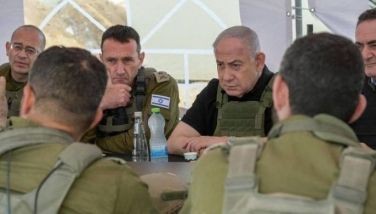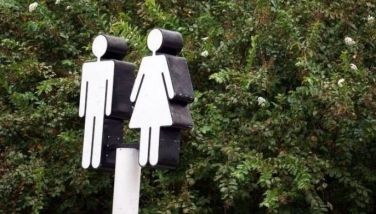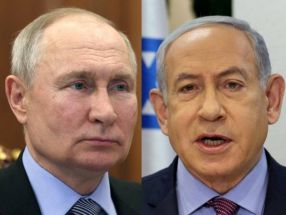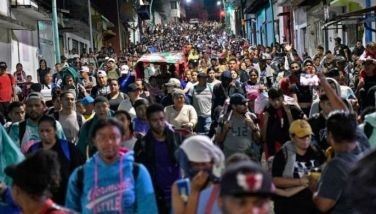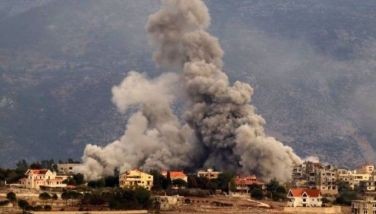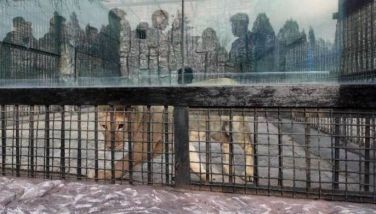North Korea fires two 'unidentified projectiles' on Thanksgiving
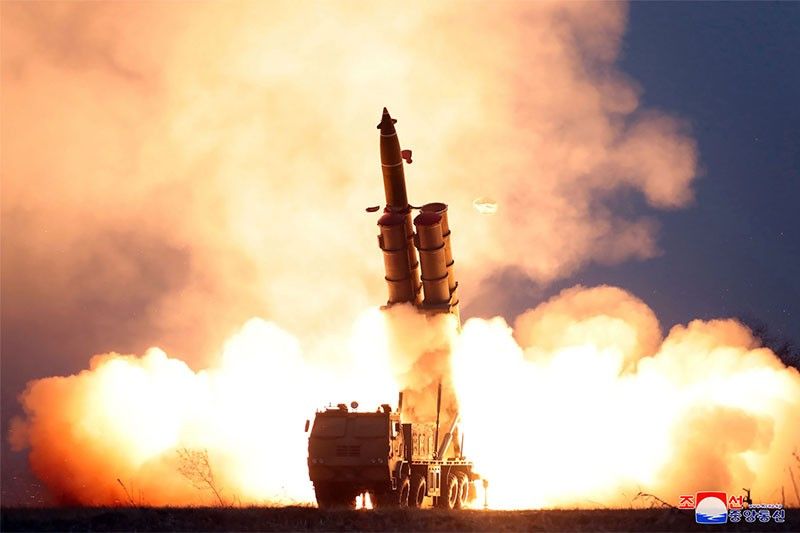
SEOUL, South Korea — North Korea fired two "unidentified projectiles" on Thursday
The projectiles
They added that the launch, the latest in a series by Pyongyang,
It was also one day short of the two-year anniversary of the North's first test of its Hwasong-15 intercontinental ballistic missile, which analysts say
"North Korea's repeated launches of ballistic missiles are a serious defiance to not only our country but also the international community," he told reporters in Tokyo.
In Washington, a State Department official said the US was monitoring the situation and consulting with allies in the region.
"We call on North Korea to avoid provocations, abide by obligations under UN Security Council Resolutions, and return to sustained and substantive negotiations to do its part to achieve complete denuclearization," the official said.
Thursday's launch came after Pyongyang fired what it called a "super-large multiple rocket launcher" system last month, and the JCS said
They flew 380 kilometres (236 miles) and reached a maximum altitude of 97
Nuclear negotiations between the US and the North have been at a standstill since the Hanoi summit between President Donald Trump and leader Kim Jong Un broke up in February, and Pyongyang has since demanded Washington change its approach by the end of the year.
"North Korea is growing anxious as its deadline approaches," said Shin Beom-
"That's why it's carrying out these provocations, which is the typical North Korean playbook to get more concessions from the US."
Test moratorium
Last month Pyongyang also claimed to have tested a "new type" of submarine-launched ballistic missile
Trump has played down the recent launches, repeatedly pointing to North Korea's moratorium on nuclear tests and intercontinental ballistic missile launches as foreign policy successes for him.
Trump and Kim adopted a
North Korea is under multiple sets of international sanctions over its nuclear weapon and ballistic missile programmes and lifting some of them was a key demand of the North's in Hanoi.
In June, Trump and Kim agreed to restart working-level talks during a meeting at the Demilitarized Zone dividing the peninsula and the two sides met in Sweden in October, only for Pyongyang to walk away.
Earlier this month, Seoul and Washington said they would postpone planned joint military exercises to ease diplomacy with the North, an announcement Pyongyang dismissed.
The North has long condemned the joint drills, which it calls preparations for invasion, and carried out multiple missile launches in the summer in protest as the allies carried out their annual exercises.
North Korea has issued a series of increasingly assertive comments in recent weeks as time runs down on its end-of-year deadline.
Trump hinted at the prospect of a fourth meeting with Kim in a tweet earlier this month, only to
South Korean officials were briefing the White House Thursday on the outcome of their pathfinding meeting with North Korean leader Kim Jong Un.
Seoul has already publicized that North Korea offered talks with the United States on denuclearization and normalizing ties, a potential diplomatic opening after a year of escalating tensions over the North's nuclear and missile tests. The rival Koreas also agreed to hold a leadership summit in late April.
Top Trump administration officials were getting a chance to hear firsthand from South Korean national security director, Chung Eui-yong, who led the delegation that went to Pyongyang. — Associated Press
South Korea's defense ministry says Thursday it was "closely monitoring" a North Korean nuclear reactor site after local media reported its operations had been temporarily suspended, potentially to extract weapons-grade plutonium.
The Donga Ilbo newspaper reports earlier in the day that intelligence sources in Seoul and Washington had detected signs the five-megawatt reactor in Yongbyon had temporarily stopped operations late last month.
The suspension could be an indication that spent fuel rods are being reprocessed to extract plutonium for use in nuclear weapons, the report cited a government source as saying. — AFP
State media reports that North Korea's rubber-stamp legislature has enshrined the country's status as a nuclear weapons power in the constitution.
"The DPRK's nuclear force-building policy has been made permanent as the basic law of the state, which no one is allowed to flout with anything," leader Kim Jong Un said at a meeting of the State People's Assembly that was held Tuesday and Wednesday, the KCNA news agency says.
DPRK is the acronym for the country's formal name. — AFP
State news agency KCNA reports that North Korea announced it had built a "tactical nuclear attack submarine" as part of its effort to strengthen its naval force.
North Korean leader Kim Jong Un presided over the unveiling ceremony on Wednesday, saying the new sub was part of a "push forward with the nuclear weaponization of the Navy in the future", according to KCNA.
The launching of submarine No. 841, named the Hero Kim Kun Ok, "heralded the beginning of a new chapter for bolstering up the naval force of the DPRK", the KCNA report said, referring to the country by the abbreviation of its formal name. — AFP
State-controlled media reports Sunday that North Korea staged a "simulated tactical nuclear attack" drill at the weekend with mock atomic warheads attached to two long-range cruise missiles that were test-fired into the ocean.
The Korean Central News Agency says the operation early Saturday was a "counteraction drill" in response to joint military activity by US and South Korean forces that KCNA said has escalated tensions in the region.
"A firing drill for simulated tactical nuclear attack was conducted at dawn of September 2 to warn the enemies of the actual nuclear war danger," KCNA reports. — AFP
Seoul's military says North Korea fired multiple cruise missiles off its west coast on Saturday, the latest in a string of recent Pyongyang military actions.
The launches come three days after the North launched a pair of short-range ballistic missiles as part of a "tactical nuclear strike drill" prompted by the annual US-South Korean Ulchi Freedom Shield military exercises, which always infuriate the reclusive regime.
Pyongyang views such the drills as a rehearsal for invasion while the two allies say they are defensive in nature. — AFP
- Latest
- Trending

















